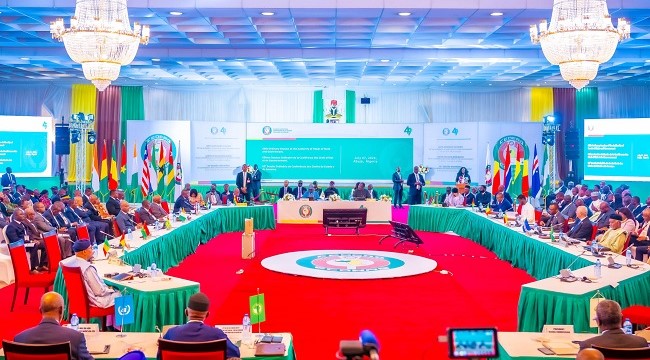The Economic Community of West African States (ECOWAS) has intensified its preparations for the introduction of its single currency, ECO, setting the new launch date for 2027 after previous delays due to the global health crisis.
Consensus on Implementation Directives
During the 66th Ordinary Session held in Abuja on Sunday, ECOWAS leaders finalized the practical arrangements needed for the ECO launch, following directives from the previous session. The meeting concluded with a communiqué outlining the steps forward.
Criteria for Currency Adoption
The Authority of Heads of State and Government has adopted criteria set by a High-Level Committee to select which member states will be ready to adopt the ECO at launch or join later. They have commissioned the ECOWAS Commission, along with the West African Monetary Agency, to integrate these criteria into the Monetary Union Agreement’s protocol.
Financial and Institutional Support
To ensure the financial backbone for this transition, the Authority endorsed proposals on funding the necessary reforms and institutions. They’ve instructed central banks and member states to prepare their financial contributions to support the operationalization of these new entities once the launch date is confirmed.
Urgency for Timely Implementation
There’s a strong push from the Heads of State for the High-Level Committee and the ECOWAS Commission to meet the established deadlines for setting up these institutions, ensuring a smooth transition to the ECO.
Agricultural Policy and Food Security
On another front, the session celebrated advancements in the ECOWAS Agricultural Policy (ECOWAP), focusing on food security and nutrition. The Authority has directed the immediate implementation of several agricultural initiatives, including livestock development, rice self-sufficiency, and the domestication of the CAADP Action Plan for the next decade.
Strengthening Regional Cooperation
The leaders have also called for enhanced cooperation with technical and financial partners to achieve these agricultural and food security goals, emphasizing the role of community institutions in this process.
READ ALSO: Nigeria Clears ₦85 Billion ECOWAS Debt After 19 Years
Anticipated Benefits of the ECO
- Improved Trade: The introduction of a single currency is expected to decrease trade costs and enhance intra-regional commerce by eliminating currency conversion issues.
- Economic Prosperity: The ECO is anticipated to foster economic growth and prosperity across member states by facilitating smoother economic interactions.
Transitional Considerations
While some advocate for a dual circulation period where both national and the ECO would be used, others propose a phased approach with two ECO zones where countries would initially peg their national currencies to the ECO. This debate reflects the complexity of transitioning to a unified currency system in the region.










